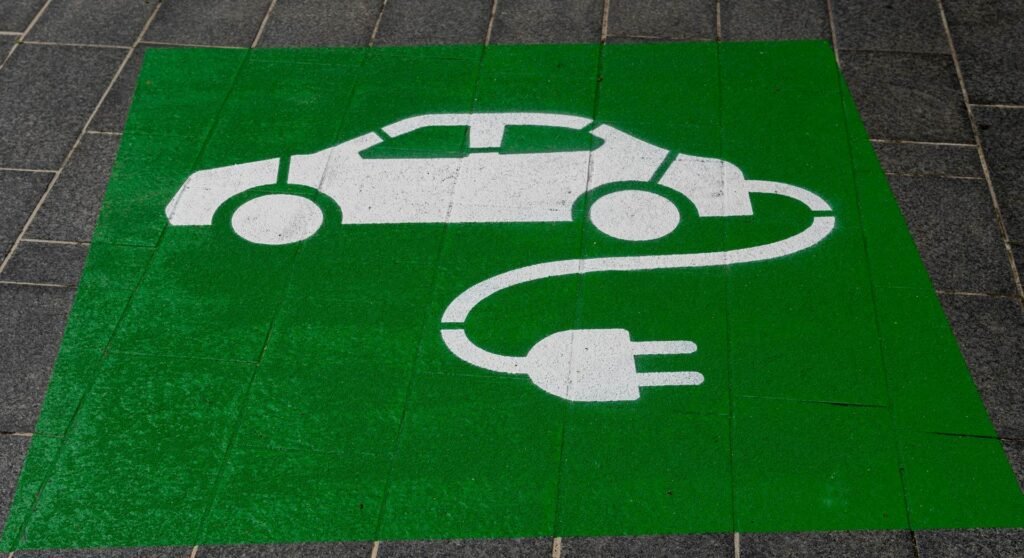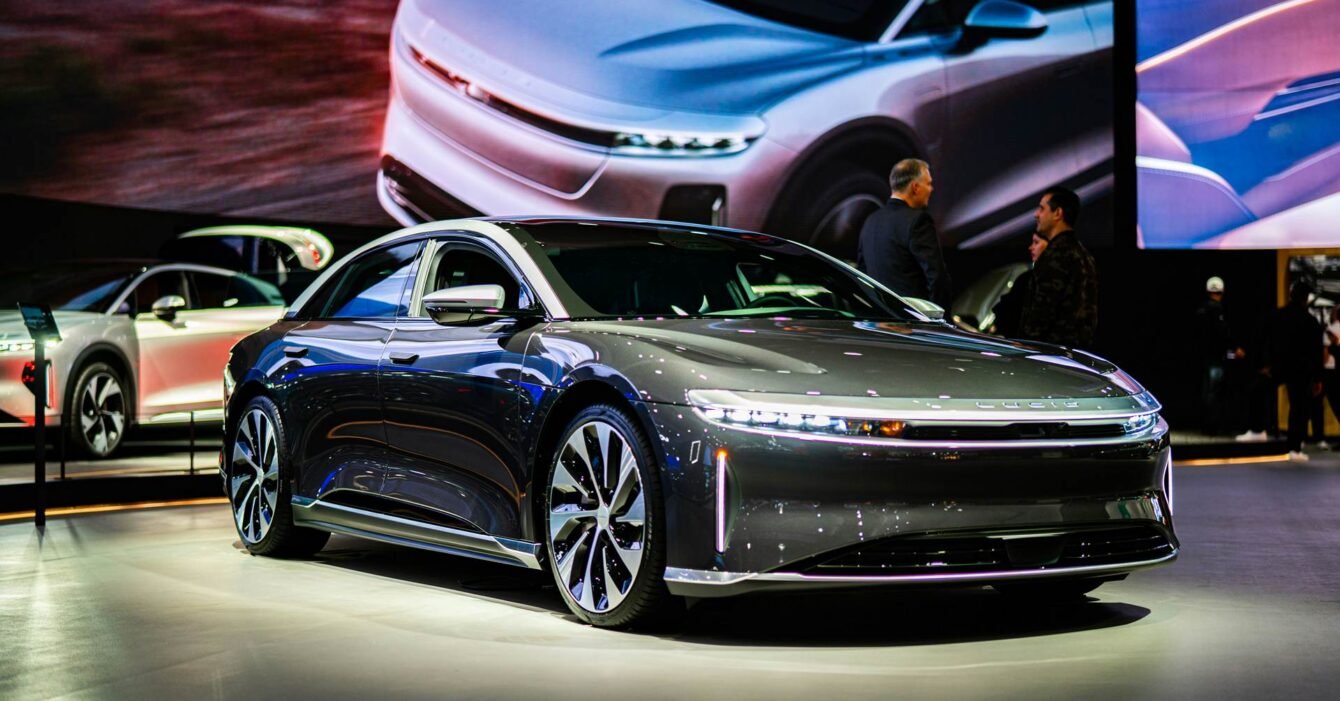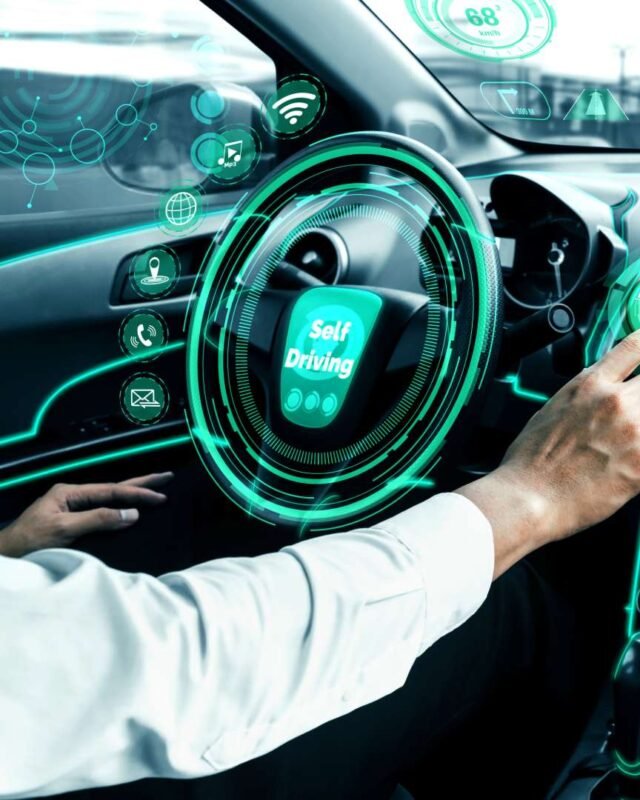As we drive past 2023, the automotive industry gears up for an exciting journey in 2024. The sector, laden with both challenges and opportunities, is navigating a complex landscape shaped by evolving technologies, new market entrants, and shifting consumer preferences. Our Saudi Automotive Consulting team has mapped out the key trends poised to shape the future of global automotive and mobility in 2024, and how these global developments will impact the Saudi Arabian market.
The Evolution of Electric Vehicles

The electric vehicle (EV) revolution, while gaining momentum, still faces significant hurdles, particularly regarding consumer adoption. The latter part of 2023 saw a slowdown in EV sales in North America, highlighting that the transition to electric mobility might be slower than anticipated. Nonetheless, advancements in autonomous driving technologies, specifically Level 3 conditional driving automation, continue to progress. This level allows vehicles to operate hands-free under certain conditions, albeit still requiring human oversight.
New Players in the Global Market
The rise of Chinese and Indian automakers marks a significant shift in the global automotive landscape. These manufacturers are increasingly making their presence felt in markets traditionally dominated by European and American brands. Their ability to produce high-quality vehicles at lower costs offers them a competitive edge. However, geopolitical challenges, such as the U.S. Inflation Reduction Act, which impacts EV tax credits, might hinder their market penetration. To circumvent these issues, Chinese OEMs are exploring manufacturing opportunities in Mexico, potentially reshaping the North American market.
Rethinking Vehicle Ownership
Millennial consumers are driving a shift away from traditional vehicle ownership toward ride-sharing and subscription models. This trend is pushing the industry to innovate, offering flexible and convenient alternatives like the Car as a Service (CaaS) model. While CaaS provides significant convenience and flexibility, it also poses challenges, such as higher costs and the risk of technological obsolescence. Despite these challenges, the model is gaining traction and is expected to grow, transforming how consumers access and use vehicles.
The Rise of Micro-Mobility
Micro-mobility solutions, including electric scooters and bikes, are revolutionizing urban transportation. These compact, eco-friendly modes of transport address the need for efficient short-distance travel in congested cities. Automakers are now integrating these solutions into their portfolios, acknowledging their role in reducing urban congestion and pollution. This shift is part of a broader movement towards integrated mobility solutions that combine traditional vehicles, public transit, and micro-mobility, promoting a more sustainable urban environment.
Navigating Regulatory Changes
The automotive industry is also contending with an evolving regulatory landscape, particularly concerning environmental, social, and governance (ESG) initiatives. New regulations in the EU and US are pushing companies to enhance transparency and align their sustainability targets with broader business strategies. This includes developing decarbonization plans, improving risk management, and setting up due diligence processes for supply chains. Additionally, advancements in in-car technology and connectivity are prompting new digital regulations, necessitating increased investment in cybersecurity and data protection.
Technological Advancements
The future of the automotive industry is closely tied to technological innovation. Emerging technologies such as 5G vehicle-to-vehicle (V2V) communication, renewable diesel, hydrogen fuel cells, and autonomous driving are set to transform mobility. These advancements not only improve vehicle efficiency and safety but also support the development of smart cities and cleaner energy solutions.
Impact on Saudi Arabia’s Automotive Market
The trends in electric vehicles (EVs), new global market players, evolving vehicle ownership models, and micro-mobility solutions will significantly influence Saudi Arabia’s automotive landscape. The Kingdom’s Vision 2030 initiative, which emphasizes sustainability and technological advancement, aligns closely with these global trends. As Saudi Arabia continues to diversify its economy, the adoption of EVs and the integration of innovative mobility solutions will be crucial. Furthermore, the entry of Chinese and Indian automakers into the Saudi market could introduce more affordable and diverse vehicle options, catering to the evolving preferences of Saudi consumers. These changes will drive the Kingdom’s automotive sector towards a more sustainable and technologically advanced future.
Despite the challenges, 2024 presents a landscape filled with optimism and opportunities for the automotive industry. It is evident that the sector is on the brink of significant transformation. The focus will be on maximizing returns, leveraging technological advancements, and adapting to new market dynamics. The journey ahead promises to be as dynamic and exciting as the innovations driving it. To navigate this road, our expert team at Saudi Automotive Consulting can provide invaluable guidance and insights, ensuring you stay ahead in this evolving market.



